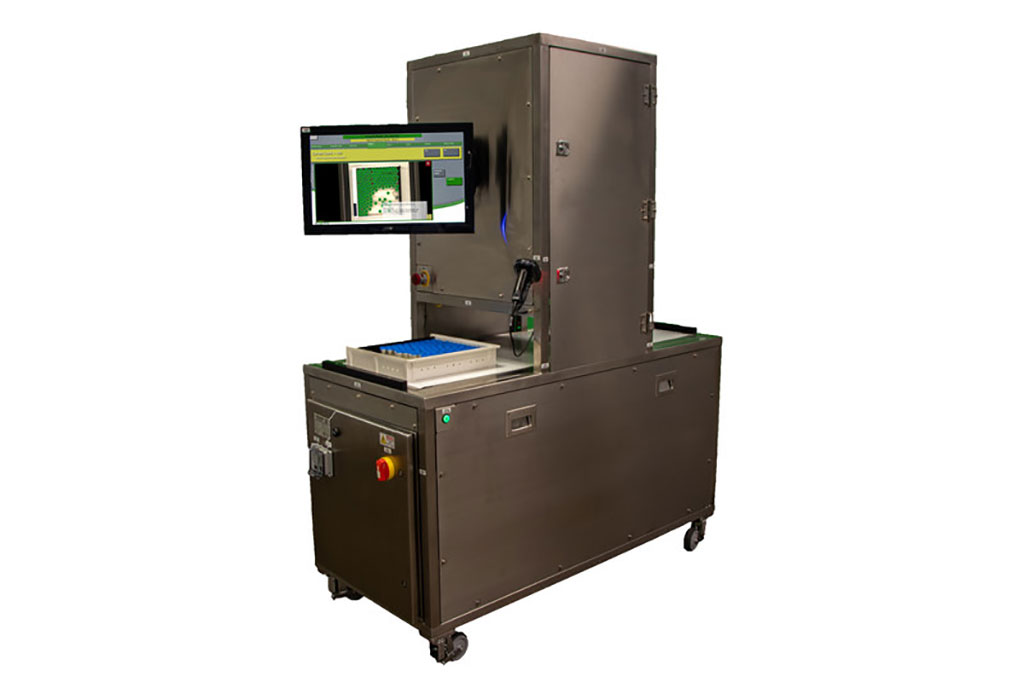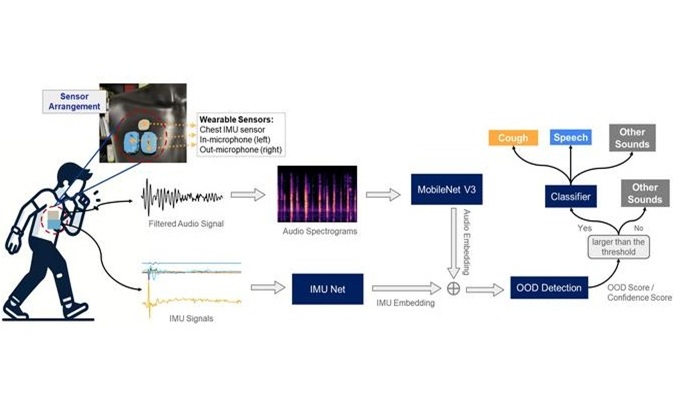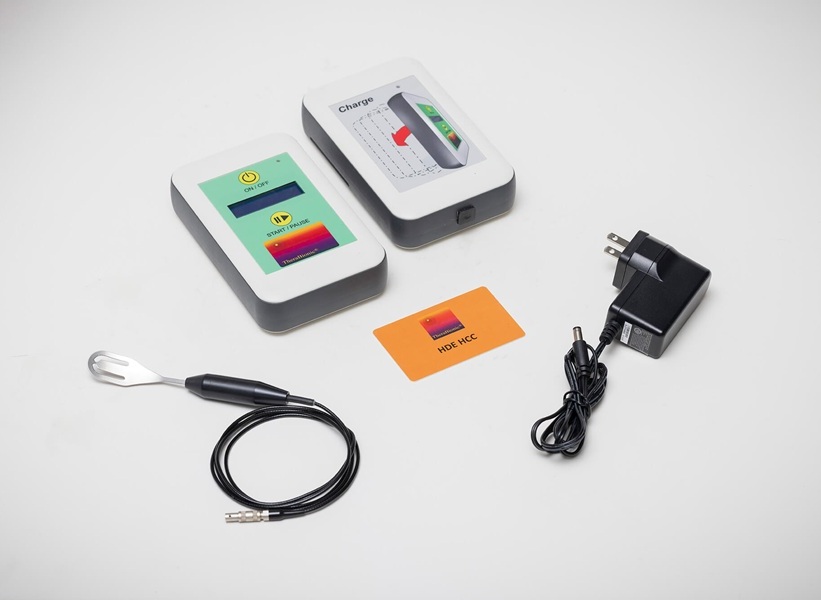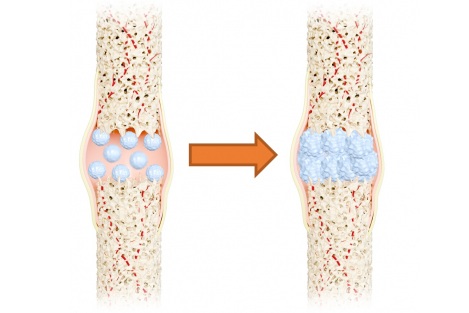Unique AI-Based Counting System Advances Accuracy and Throughput for COVID-19 Vaccine
|
By HospiMedica International staff writers Posted on 23 Oct 2020 |

Image: COUNTQ(TM) system (Photo courtesy of Verista)
A new inspection and reconciliation machine is helping pharmaceutical companies accelerate COVID-19 vaccines from development to manufacturing with accelerated technology transfer.
The COUNTQ system from Verista (Fishers, IN, USA) is an inspection and reconciliation machine used to accurately count tray-loaded parts, including vaccine vials. The machine significantly increases accuracy of count and throughput versus manual methods. Pharmaceutical companies must account for all vaccine vials on a production line, and the process includes inspection, labeling, re-inspection, boxing and shipping. With the COUNTQ system, a trained operator can accurately inspect a tray in 15 seconds. The machines eliminate count deviations that occur during the filling, inspection and packaging processes. The system's software provides 100% electronic verification of product counts and eliminates the reworking of vaccine lots due to reconciliation and count discrepancies.
A single COUNTQ machine handles vials, syringes, ampoules and other tray-loaded parts. The COUNTQ systems offer deep learning (form of AI) to enable the inspection of products that cannot be counted consistently with traditional machine vision technologies. COUNTQ machines offer deep learning for scenarios in which there is greater variation in products and presentation to the camera, such as the inspection of ampoules. The stainless-steel COUNTQ systems are available in multiple forms for different manufacturing environments, including full-sized units with conveyor transport and smaller manual feed and inline options. The machines are portable and can move along the manufacturing process.
"How quickly COVID-19 vaccine production ramps up will depend on technology like COUNTQ for vial count verification and reconciliation," said Jim Evans, Director, Vision, Connectivity & Automation Division, Verista. "Normally it takes years to adapt manufacturing processes for millions or billions of vaccine doses. The rapid scale-up of COVID-19 vaccine production involves a complex production process, strict quality standards and the right regulatory registrations. The COUNTQ system provides vaccine manufacturers increased efficiency and count accuracy, while reducing operational costs. Our unique AI-based counting system works with an operator to verify everything on a tray of vials is accounted for and correct."
Related Links:
Verista
The COUNTQ system from Verista (Fishers, IN, USA) is an inspection and reconciliation machine used to accurately count tray-loaded parts, including vaccine vials. The machine significantly increases accuracy of count and throughput versus manual methods. Pharmaceutical companies must account for all vaccine vials on a production line, and the process includes inspection, labeling, re-inspection, boxing and shipping. With the COUNTQ system, a trained operator can accurately inspect a tray in 15 seconds. The machines eliminate count deviations that occur during the filling, inspection and packaging processes. The system's software provides 100% electronic verification of product counts and eliminates the reworking of vaccine lots due to reconciliation and count discrepancies.
A single COUNTQ machine handles vials, syringes, ampoules and other tray-loaded parts. The COUNTQ systems offer deep learning (form of AI) to enable the inspection of products that cannot be counted consistently with traditional machine vision technologies. COUNTQ machines offer deep learning for scenarios in which there is greater variation in products and presentation to the camera, such as the inspection of ampoules. The stainless-steel COUNTQ systems are available in multiple forms for different manufacturing environments, including full-sized units with conveyor transport and smaller manual feed and inline options. The machines are portable and can move along the manufacturing process.
"How quickly COVID-19 vaccine production ramps up will depend on technology like COUNTQ for vial count verification and reconciliation," said Jim Evans, Director, Vision, Connectivity & Automation Division, Verista. "Normally it takes years to adapt manufacturing processes for millions or billions of vaccine doses. The rapid scale-up of COVID-19 vaccine production involves a complex production process, strict quality standards and the right regulatory registrations. The COUNTQ system provides vaccine manufacturers increased efficiency and count accuracy, while reducing operational costs. Our unique AI-based counting system works with an operator to verify everything on a tray of vials is accounted for and correct."
Related Links:
Verista
Latest COVID-19 News
- Low-Cost System Detects SARS-CoV-2 Virus in Hospital Air Using High-Tech Bubbles
- World's First Inhalable COVID-19 Vaccine Approved in China
- COVID-19 Vaccine Patch Fights SARS-CoV-2 Variants Better than Needles
- Blood Viscosity Testing Can Predict Risk of Death in Hospitalized COVID-19 Patients
- ‘Covid Computer’ Uses AI to Detect COVID-19 from Chest CT Scans
- MRI Lung-Imaging Technique Shows Cause of Long-COVID Symptoms
- Chest CT Scans of COVID-19 Patients Could Help Distinguish Between SARS-CoV-2 Variants
- Specialized MRI Detects Lung Abnormalities in Non-Hospitalized Long COVID Patients
- AI Algorithm Identifies Hospitalized Patients at Highest Risk of Dying From COVID-19
- Sweat Sensor Detects Key Biomarkers That Provide Early Warning of COVID-19 and Flu
- Study Assesses Impact of COVID-19 on Ventilation/Perfusion Scintigraphy
- CT Imaging Study Finds Vaccination Reduces Risk of COVID-19 Associated Pulmonary Embolism
- Third Day in Hospital a ‘Tipping Point’ in Severity of COVID-19 Pneumonia
- Longer Interval Between COVID-19 Vaccines Generates Up to Nine Times as Many Antibodies
- AI Model for Monitoring COVID-19 Predicts Mortality Within First 30 Days of Admission
- AI Predicts COVID Prognosis at Near-Expert Level Based Off CT Scans
Channels
Critical Care
view channel
Origami Robots to Deliver Medicine Less Invasively and More Effectively
Delivering medicine to ulcers or other internal sites often requires invasive procedures that can disrupt surrounding tissues and lengthen recovery times. Traditional magnetic actuators used in soft robotics... Read more
Improved Cough-Detection Technology Aids Health Monitoring
Coughing serves as an important biomarker for tracking a variety of conditions and can help monitor the progress of respiratory diseases or predict when someone’s asthma is being exacerbated.... Read moreSurgical Techniques
view channel
Novel Glue Prevents Complications After Breast Cancer Surgery
Seroma and prolonged lymphorrhea are among the most common complications following axillary lymphadenectomy in breast cancer patients. These postoperative issues can delay recovery and postpone the start... Read more
Breakthrough Brain Implant Enables Safer and More Precise Drug Delivery
Delivering medication directly to specific regions of the brain has long been a major challenge in treating neurological disorders. Current implants and infusion systems typically reach only one or two... Read morePatient Care
view channel
Revolutionary Automatic IV-Line Flushing Device to Enhance Infusion Care
More than 80% of in-hospital patients receive intravenous (IV) therapy. Every dose of IV medicine delivered in a small volume (<250 mL) infusion bag should be followed by subsequent flushing to ensure... Read more
VR Training Tool Combats Contamination of Portable Medical Equipment
Healthcare-associated infections (HAIs) impact one in every 31 patients, cause nearly 100,000 deaths each year, and cost USD 28.4 billion in direct medical expenses. Notably, up to 75% of these infections... Read more
Portable Biosensor Platform to Reduce Hospital-Acquired Infections
Approximately 4 million patients in the European Union acquire healthcare-associated infections (HAIs) or nosocomial infections each year, with around 37,000 deaths directly resulting from these infections,... Read moreFirst-Of-Its-Kind Portable Germicidal Light Technology Disinfects High-Touch Clinical Surfaces in Seconds
Reducing healthcare-acquired infections (HAIs) remains a pressing issue within global healthcare systems. In the United States alone, 1.7 million patients contract HAIs annually, leading to approximately... Read moreHealth IT
view channel
Printable Molecule-Selective Nanoparticles Enable Mass Production of Wearable Biosensors
The future of medicine is likely to focus on the personalization of healthcare—understanding exactly what an individual requires and delivering the appropriate combination of nutrients, metabolites, and... Read moreBusiness
view channel
Philips and Masimo Partner to Advance Patient Monitoring Measurement Technologies
Royal Philips (Amsterdam, Netherlands) and Masimo (Irvine, California, USA) have renewed their multi-year strategic collaboration, combining Philips’ expertise in patient monitoring with Masimo’s noninvasive... Read more
B. Braun Acquires Digital Microsurgery Company True Digital Surgery
The high-end microsurgery market in neurosurgery, spine, and ENT is undergoing a significant transformation. Traditional analog microscopes are giving way to digital exoscopes, which provide improved visualization,... Read more
CMEF 2025 to Promote Holistic and High-Quality Development of Medical and Health Industry
The 92nd China International Medical Equipment Fair (CMEF 2025) Autumn Exhibition is scheduled to be held from September 26 to 29 at the China Import and Export Fair Complex (Canton Fair Complex) in Guangzhou.... Read more

















